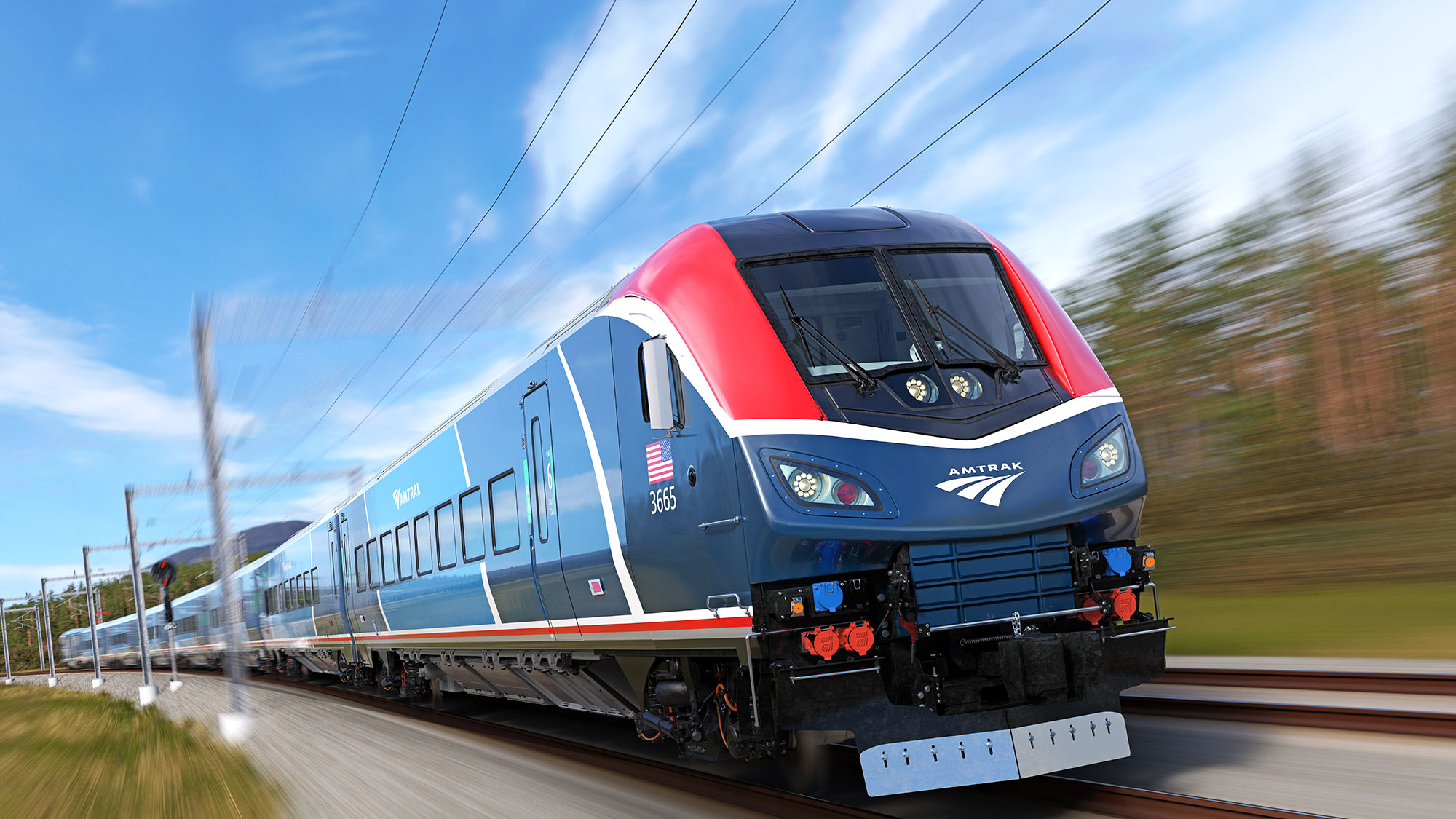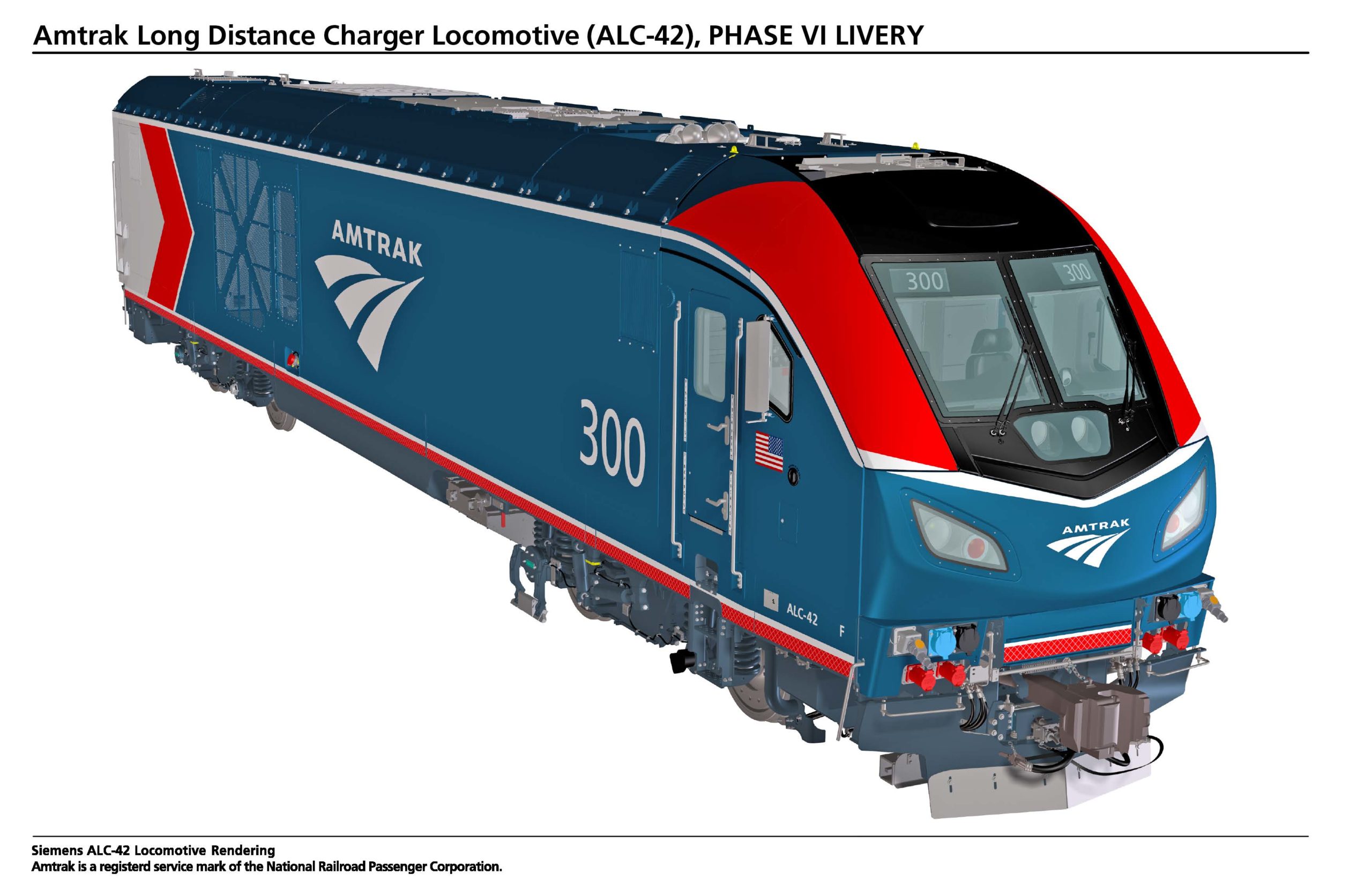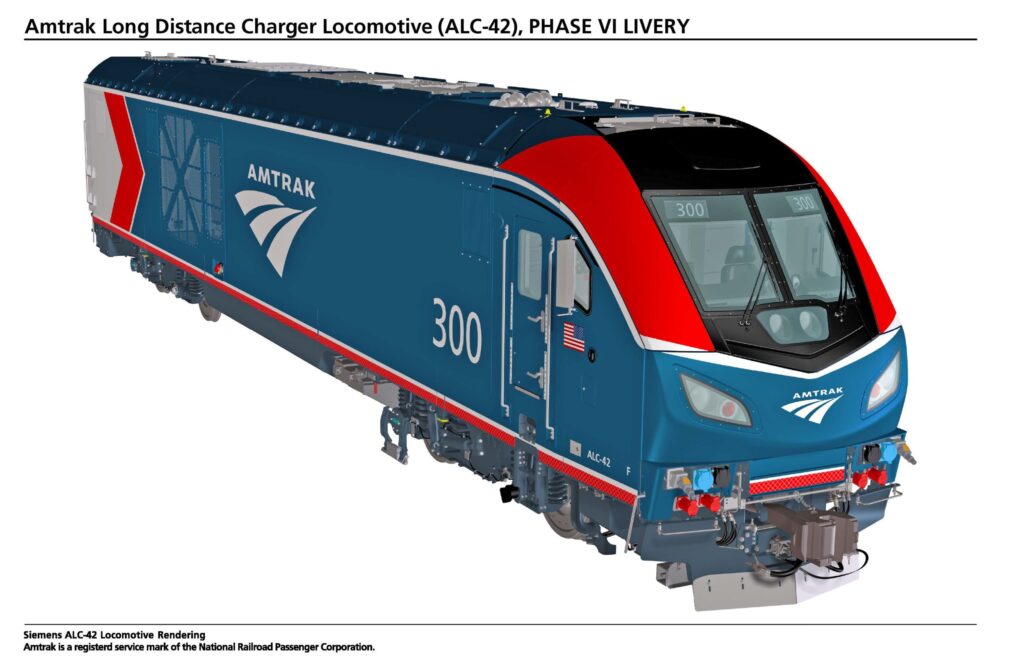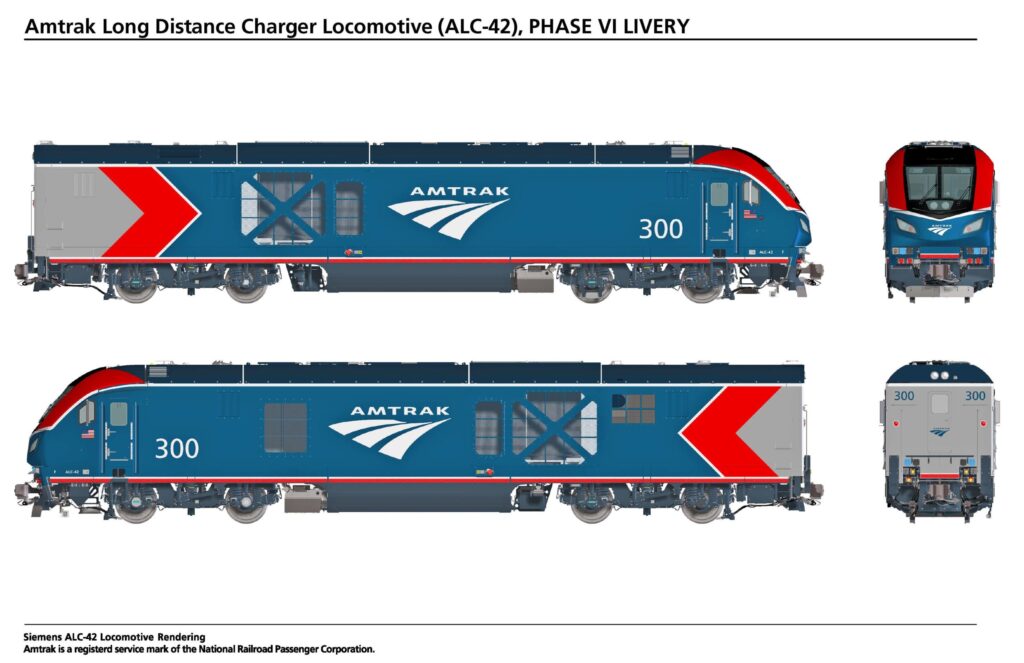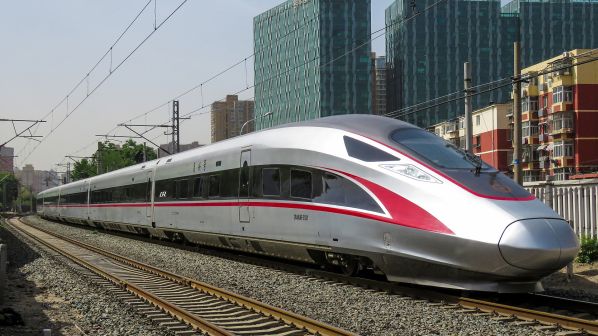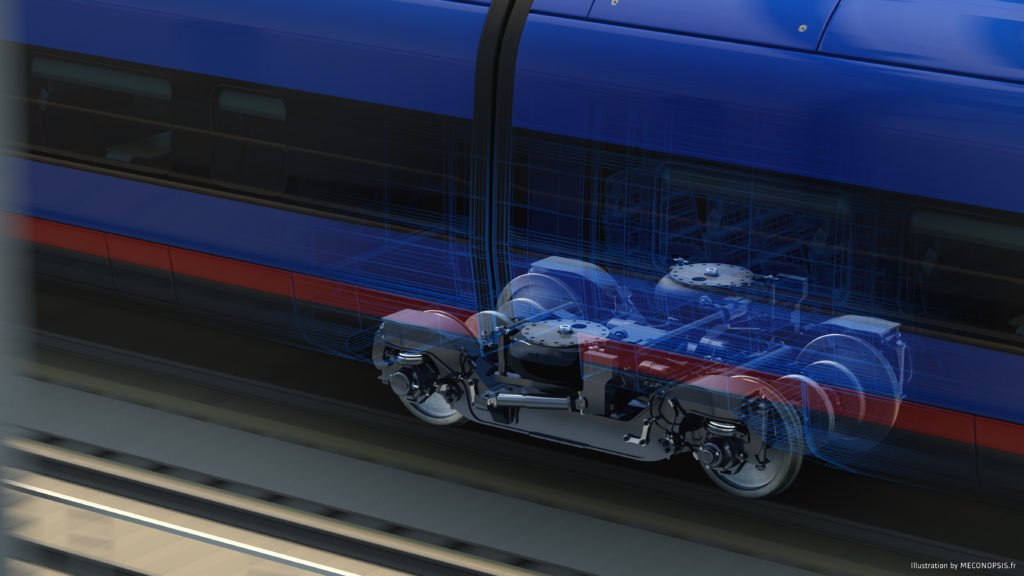Washington, D.C. – Amtrak executed a contract option to order 10 additional Amtrak Airo trainsets as demand for passenger rail travel exceeds expectations. This brings the total contract order to 83 trainsets. The first Amtrak Airo trainset is scheduled to debut in 2026 and these new trains will operate on routes throughout the country. The Amtrak Airo trainsets are being manufactured in California by Siemens (OTC: SIEGY) A.G. of Germany.
Currently in production, the new trains will elevate the customer journey. Features include:
- 💺 Spacious, Comfortable Seats: Loaded with features and improvements:
- Dedicated power, USB-C ports, seatback tablet and phone holders, bigger and sturdier tray tables and adjustable cup holders.
- Contoured seat cushions, enhanced leg room, individual arm rests and adjustable headrests – all with a focus on ergonomics.
- 🗺 Trip and Train Navigation: Bolder, color-coded signage to identify amenities and differentiate classes of service, both on board and on the platform.
- 🌍 Greener Impact:
- More fuel efficient, producing 90% less particulate emissions in diesel operations.
- Dedicated water stations on each trainset, providing chilled and filtered hydration, while reducing the need for disposable plastic bottles.
- 🤳 Modern Tech: New 5G Wi-Fi and digital information systems.
- ♿ Enhanced Accessibility:
- Spacious and accessible restrooms, vestibules and Café cars with integrated boarding equipment for customers with reduced mobility.
- Inductive hearing technology to assist with onboard announcements.
- 🍽 Café Car: Contemporary food service allows for a grab-and-go experience.
- 🚽 Restrooms: Touchless with spacious, accessible interiors.
- 💻 Business Class: Increased space between customers, offering double and single seats, wider arm rests, additional outlets, footrests and improved ambiance.
- 💡 Lighting: Enhanced lighting provides a softer yet functional interior with individual reading lights at each seat.
- 🧳 Luggage: Access to ample storage space for baggage.
Click the link below to watch the video!
